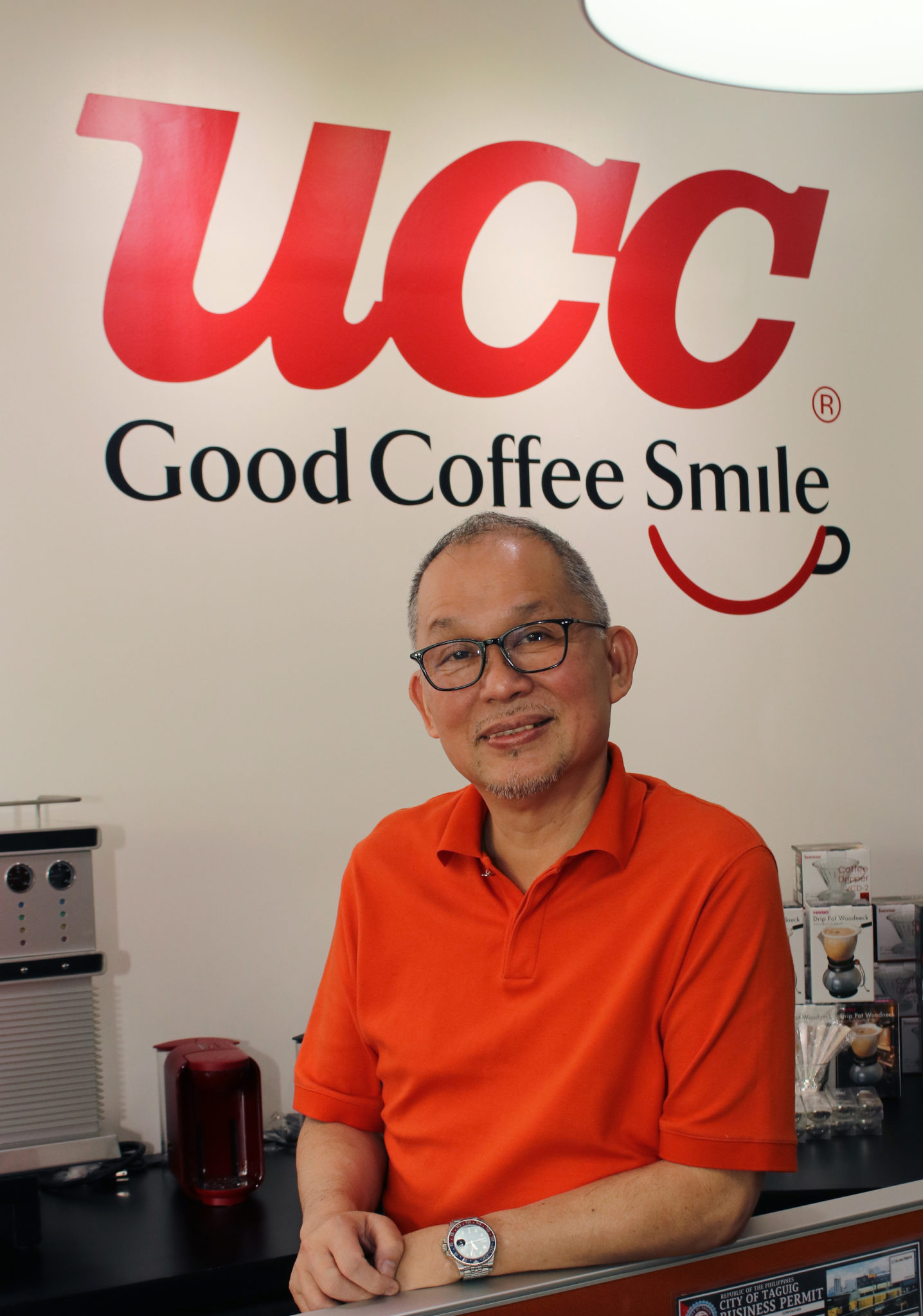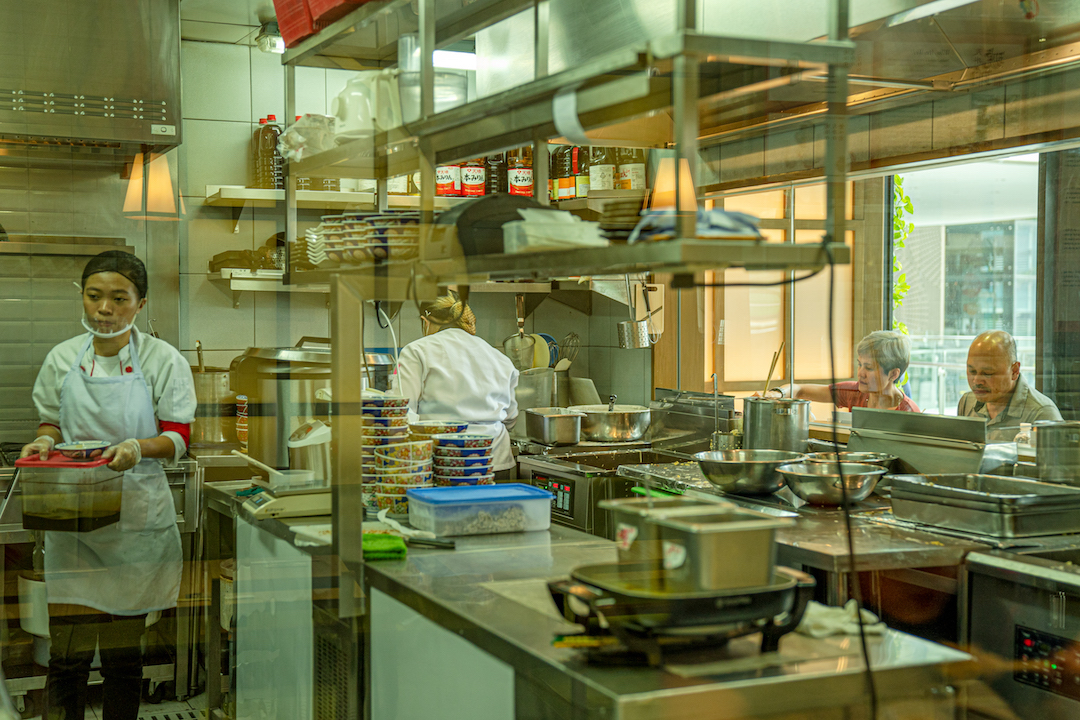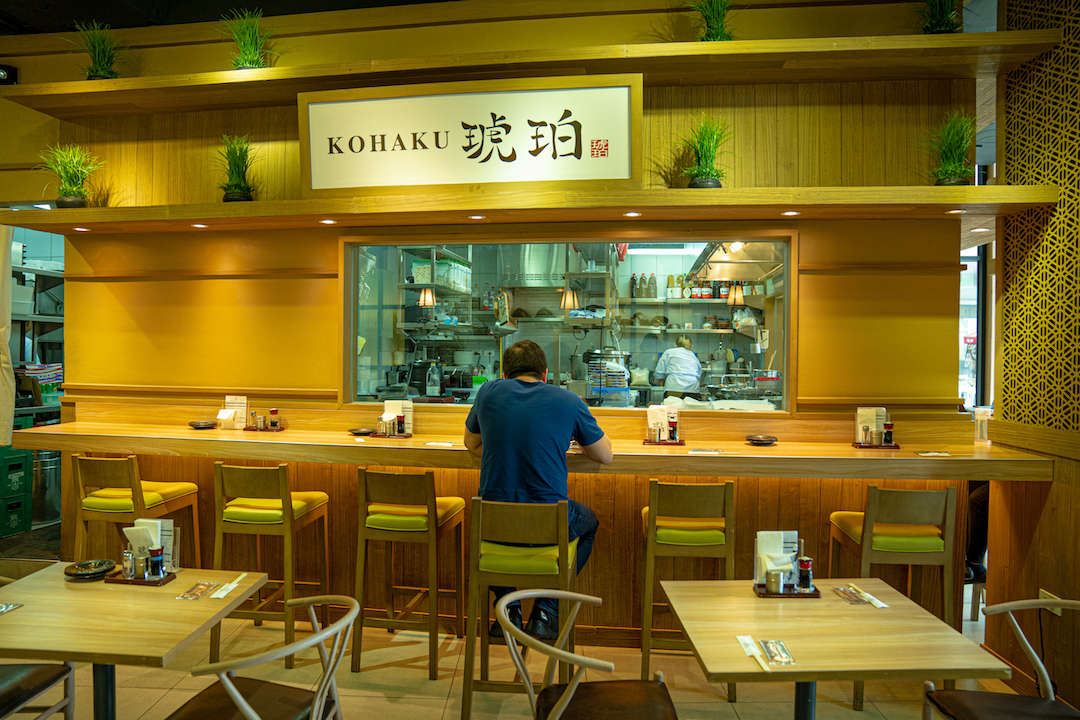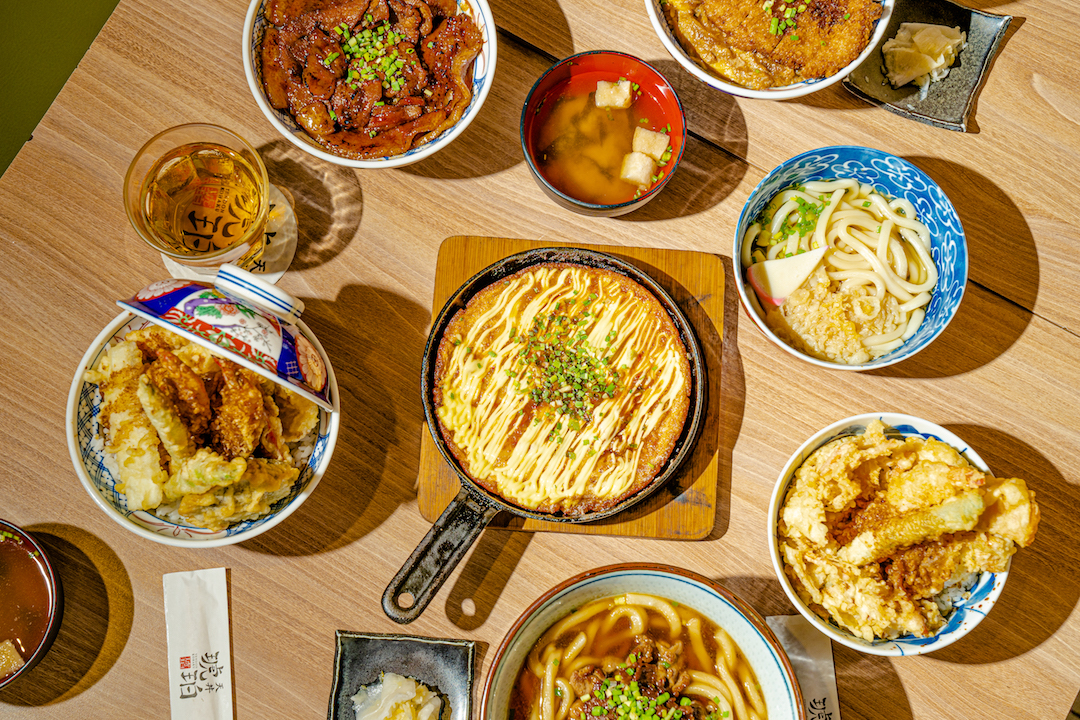In the past decade or so, Japan has become a more accessible destination. Visa requirements aren’t as strict as before, resulting in an abundance of social media posts from Filipinos exploring the country and its cities.
Japan is increasingly opening up to the Philippine market too, with the popularity of brands like Uniqlo. This interest has no doubt extended to the food industry. People willingly wait and line up outside restaurants to satisfy their cravings for ramen, sushi, and other specialty dishes.
When it comes to passion for Japanese food, there’s no one better to talk to than Hubert Young, chief executive officer of UCC Ueshima Coffee Philippines, Inc. Known for bringing franchises like UCC Coffee, Mitsudayo Sei-Men, Tendon Kohaku, Coco Ichibanya, and Shaburi & Kintan Buffet to the Philippines, he speaks with love and excitement for the cuisine he wants more Filipinos to experience.

Reintroducing Japan to Filipinos
According to Young, while Japanese food is rather simple, the fine touches elevate it and give it a plus factor. Anything that’s Japanese is detailed yet they don’t tend to put a premium on their products. They focus instead on producing quality items and making these available at an affordable price.
This is the theme that runs in all of Young’s brands, offering abot-kaya Japanese food. As the Filipino palate is getting a more adventurous, many are realizing that there’s no need to pay a lot to eat good food.
In Tendon Kohaku, they source the freshest ingredients possible such as the shrimp used in their tempura. The materials used for the batter are also of premium grade, which results in a crispy golden exterior. Each bowl and plate are filled with generous servings of the food.
Young’s latest venture Shaburi and Kintan Buffet was conceptualized with the intent of opening an inexpensive Japanese grill that uses quality meat without any compromises so they can sustain the lower price points.
Decisions aren’t made right away and Hubert Young follows how the Japanese work (“They take their time”). It’s a two-way street in that both parties do their due diligence and background checks, and take the time to meet up personally to get to know each other better
In the case of Coco Ichibanya, he saw that no one has really introduced Japanese curry in the Philippines. And it was a surprise to him that Filipinos ended up loving it as curry is typically associated with the spicy Indian variant. He took advantage of the fact that Filipinos love rice and variety, which is why the restaurant lets customers choose the amount of rice, the level of spice, and the kinds of toppings that go into their orders.
Using the popularity of coffee shops was an avenue for Young to bring in UCC Coffee. “Filipinos love coffee shops to chit-chat, study, and hold meetings,” says Young. He also noticed that they’re willing to spend money for espresso and other coffee-based drinks. “If Filipinos can afford to pay this much, why not give them good coffee for that price point?” This then led to the introduction of Japanese coffee, which is made using the siphon method.
While ramen shops are popping up everywhere in the country, his concept store Mitsuyado Sei-Men offers a specific type of noodle dish. The tsukemen is the highlight of this establishment where noodles are dipped into sauce instead of serving the two components together in a bowl.

To help Young see the newest trends in the Japanese food industry, he schedules trips to Japan at least once a month. He frequents convenience stores, train stations, and coffee shops to see what people are eating and buying. He travels around the Philippines, too, so he can see if there’s a need or demand for a particular type of product. But he steers clear of social media. “If it’s on social media, somebody already thought about it.”
Building solid partnerships
Choosing which concepts to bring to the Philippines is a long process. Whenever brands approach Young, which is mostly the case, he checks whether the market is ready for the products. If its offerings are already common, he looks for something new they can offer to the table.
The CEO believes in forging long-term relationships with Japan-based players in the industry. So he places a lot of value on a company’s principles. Decisions aren’t made right away, following how the Japanese work (“They take their time”). It’s a two-way street in which both parties do their due diligence and background checks, and take the time to meet up personally to get to know each other better.
“It isn’t really that difficult to get a brand from Japan,” Young says. “It’s always a matter of credentials.” Besides that, a stellar work ethic is crucial. This is what matters, especially to Japanese companies: that they see who you are and what you can do. They’re straightforward once their trust is earned and they don’t beat around the bush—both of which come naturally to Young.

He says that for Coco Ichibanya, he initially thought they weren’t successful in getting the brand since the Japanese company already had a selection of key players who were vying for the deal. But after a year and a half, they were given the chance and he immediately said yes.
It was also Young’s dream to bring Mos Burger to the country ever since he first saw the establishment in Singapore in 1998. About 19 years later, Mos Burger Japan found out what Young was doing with Japanese franchises in the Philippines. Now, a joint venture company has been set up with Mountain Ocean Sun (MOS) Foods Japan.
All about perfect timing
Young says he’s fortunate that companies approach him, but some dealings don’t work right away. Sometimes the Filipino market isn’t quite ready for a particular concept or there’s no demand for it yet. Such was the case with Mos Burger when he tried approaching them three years ago. There are also others keen on entering the industry but still don’t have the right systems in place.
“If it’s on social media, somebody already thought about it,” says Hubert Young.
There were instances when the timing wasn’t right on his part, too, in that he wasn’t seasoned and experienced enough to handle bigger brands. He shares that he started from ground zero, with a background in marketing and a love for coffee (he handled the coffee section of his family’s businesses a few decades ago). He learned the ropes in the food industry, working his way up from washing dishes to buying ingredients in the market.
When asked about upcoming concepts he’s planning to bring to the country, there are a few f he’s thought of. He’s just waiting when the opportunity will fall in his lap.
Be true to who you are
For budding entrepreneurs wanting to bring international franchises or start their own concepts, Young has this piece of advice to offer: “Be yourself. Don’t try to be who you’re not.” Being honest and sincere in the work that you do and what you can offer is what’s going to get you those partnerships. Young is proud to say that he’s never a copycat and he refuses to do what others are doing.
He also notices how many young entrepreneurs are impatient in that they want to do things now and succeed right away. “Don’t be too aggressive that you tend to promise but don’t deliver.” This is going to affect your credibility and future potential relationships in the business.
It’s also normal to stumble sometimes. What’s important is, “You learn to stand up and walk again. Pick up your sticks and get going.” And when the timing is right, grab the opportunity and take it from there.





